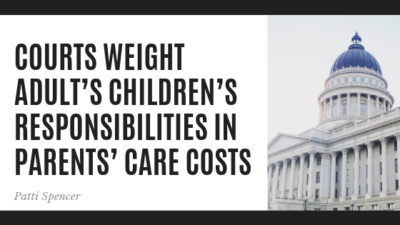Courts Weight Adult’s Children’s Responsibilities in Parents’ Care Costs

Can an Adult Child be Held Responsible for a Parent’s Nursing Home Costs? On May 7, 2012 the Pennsylvania Superior Court issued an opinion in the case of Healthcare Retirement Corporation of America v. Pittas. The court found a son liable for his mother’s $93,000 nursing home bill under Pennsylvania’s Filial Responsibility Law. This high-profile… Read More


